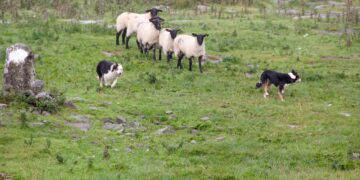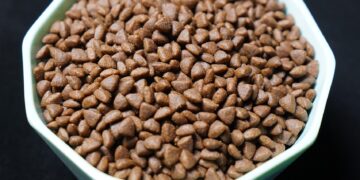Revolutionize Your Dog’s Diet: Nutritional Advice for Optimal Health Care
Every dog owner dreams of their furry friend living a long, healthy, and happy life. One fundamental way to ensure your beloved pet achieves this is by focusing on their diet. Proper nutrition isn’t just about feeding your dog; it’s about feeding them right. In this comprehensive guide, we will delve into the elements of a balanced canine diet, debunk common myths, and provide practical advice for boosting your dog’s health through nutrition.
Understanding Your Dog’s Nutritional Needs
Dogs, much like their owners, require a balanced diet infused with key nutrients to maintain health. However, their nutritional needs differ significantly from ours. Here’s a quick breakdown of what a healthy dog diet should consist of:
Proteins
Proteins are essential as they contribute to muscle growth and repair. A high-quality protein source should be the primary ingredient listed in your dog’s food. Good sources include chicken, beef, fish, and lamb.
Fats
Fats are a vital energy source and help in nutrient absorption, particularly fat-soluble vitamins such as A, D, E, and K. They also contribute to nerve function and cell integrity. Sources of good fats include fish oil and flaxseed.
Carbohydrates
While not vital, carbohydrates provide energy and help in gastrointestinal health. They include grains like barley, oats, and brown rice. However, moderation is key, and it’s important to opt for whole grains where possible.
Vitamins and Minerals
A range of vitamins and minerals support a plethora of bodily functions from bone health to immune system performance. They often occur naturally in many of the ingredients found in quality dog foods.
Choosing the Right Dog Food
With numerous brands and types of dog food available, selecting the right one can seem daunting. Here are some tips to make this process easier:
Analyze the Ingredients
Always read the ingredient list on dog food labels. The first ingredient should ideally be a source of high-quality protein (e.g., real chicken, beef, or lamb). Avoid foods with excessive chemical preservatives and unnamed meat products.
Consider Your Dog’s Age, Breed, and Activity Level
Puppies, adult dogs, and seniors have different nutritional needs, as do different breeds and those with variable activity levels. Make sure you choose a diet that fits your dog’s specific age, size, and energy requirements.
Grain-Free or With Grain?
There’s ongoing debate about whether dogs should have grain-free diets. While some dogs might benefit from grain-free food, particularly if they have certain allergies, others can thrive on diets that include grains. Consult with a vet to determine what’s best for your pet.
Common Myths About Dog Nutrition
Deciphering fact from fiction is crucial when it comes to your dog’s diet. Let’s clarify some widespread misconceptions:
Myth: Dogs are Carnivores
Although dogs belong to the order Carnivora, they are omnivores in dietary needs. They can digest a variety of foods including vegetables and grains along with meat.
Myth: Raw Diets are Always Better
Raw diets can offer benefits, but they also carry risks such as exposure to pathogens. Always discuss with a veterinarian before switching to a raw diet.
Myth: More Protein Equals Better Health
While protein is essential, excessive can be harmful, especially in older dogs or dogs with certain health conditions. Balance is key.
Practical Tips for Enhancing Your Dog’s Diet
Implement these tips to provide your dog with a nutritional boost:
Rotate Proteins
To prevent allergies and provide varied nutrients, rotate the primary protein sources in your dog’s diet every couple of months.
Add Fresh Veggies and Fruits
Incorporate safe fruits and vegetables like carrots, blueberries, and apples as treats or diet supplements for extra fiber, vitamins, and enzymes.
Hydration is Key
Ensure your dog has access to fresh water at all times. Dehydration can quickly lead to serious health issues.
Diet Supplements
Consider adding supplements such as probiotics, Omega-3 oils, or glucosamine after consulting with your vet, especially if your dog has specific health concerns.
The Path Forward
Transforming your dog’s diet can have profound effects on their health and happiness. Start by assessing your dog’s current food and gradually introduce positive changes. Remember, variety and balance are the cornerstones of good nutrition. Consult your vet regularly, and stay informed to make the best choices for your furry friend’s dietary needs.
Armed with this knowledge, you’re now equipped to give your dog the vibrant, healthy life they deserve through better nutrition. Feed them well, and enjoy the journey together!














































